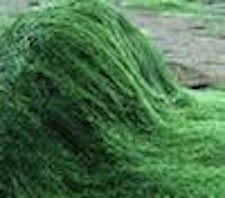Chlorella & Algae
Avoid Algae & Chlorella & Spirulina
Chlorella is made from algae, the scum growing on water. Chlorella is an algae. 90% of those studied with PKD have liver cysts. Any algae, ferment, yeast, scum is not beneficial for the liver. When some of us eat something harmful immediately we may get liver pain or kidney pain. This can come about with a product that contains yeast, ferment, or scum. Spirulina is a microalgae that has been consumed for centuries due to its high nutritional value and supposed health benefits. However with cystic organs all of these supplements can be harmful and are best avoided.Most of the chlorella that is available in the U.S. is grown in Japan or Taiwan. It is processed and made into tablets or liquid extracts. These extracts contain chlorella growth factor, which is described as a water-soluble extract of chlorella containing chemicals including amino acids, peptides, proteins, vitamins, sugars, and nucleic acids.
Be aware that chlorella products can vary significantly depending on the way the crop used in making supplements was cultivated, harvested, and processed. Investigators have found that dried preparation of chlorella can contain from 7% - 88% protein, 6% - 38% carbohydrate, and 7% - 75% fat. That's quite a big range.
Because supplements like chlorella are not regulated by the FDA, you can't always be sure of their quality. Supplement manufacturers are not required to prove their concentration or safety, as long as they don't claim specific health benefits on the label. When purchased in tablet form, chlorella is highly processed and may have had some nutrients removed. The antioxidant and protein content may vary widely among brands and even among batches made by the same manufacturer. You can't be certain that the chlorella you purchase is pure.
If you have an allergy to chlorella, you may experience rashes or itching. Some people's skin is more sensitive to the sun when taking chlorella. Nausea or vomiting after consuming chlorella supplements is also a potential side effect. It may trigger asthma symptoms as well. If you are on blood-thinning medication, be wary of chlorella, which is high in vitamin K and could compromise your clotting abilities. If you are pregnant, breast-feeding or sensitive to iodine, it's best to avoid chlorella.
Many of the claimed benefits of chlorella as a supplement have not been proven by medical science, but the nutrient content could be beneficial to those with deficiencies, notes the American Cancer Society. Use of chlorella to treat cancer has not been conclusively shown in scientific studies, and relying on it instead of conventional treatments could be harmful. Here is one person's experience with chlorella.
Blue Green Algae
Certain species of Blue-green algae (a.k.a. cyanobacteria) have the ability to produce toxins. Toxic blue-green algae can dominate the algae populations of a lake under the right combinations of water temperature, low water depths, and nutrients.
Pets and livestock have died from drinking water containing toxic blue-green algae. The risks to humans comes from external exposure (prolonged contact with skin) and from swallowing the water. Symptoms from external exposure are skin rashes, lesions and blisters. More severe cases can include mouth ulcers, ulcers inside the nose, eye and/or ear irritation and blistering of the lips. Symptoms from ingestion can include headaches, nausea, muscular pains, central abdominal pain, diarrhea and vomiting. Severe cases could include seizures, liver failure, respiratory arrest-even death, although this is rare. The severity of the illness is related to the amount of water ingested, and the concentrations of the toxins.
